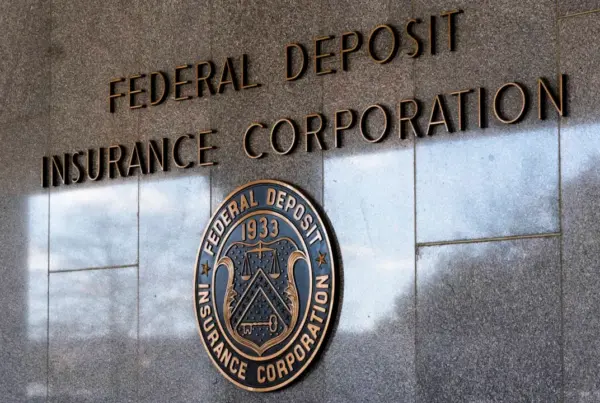“`html
FDIC’s Proposed Rules on Brokered Deposits: Essential Insights for Financial Institutions
Introduction
On August 23, 2024, the Federal Deposit Insurance Corporation (FDIC) announced proposed amendments to its regulations governing brokered deposits, a critical regulatory update that aims to enhance the safety and soundness of the banking system. This proposal is open for public comment until November 21, 2024, and reflects the FDIC’s ongoing efforts to adapt to the evolving financial landscape shaped by technological advancements and the increasing prominence of non-traditional banking entities.
Historically, the regulation of brokered deposits has been a focal point for the FDIC, particularly under Section 29 of the Federal Deposit Insurance Act, which outlines the conditions under which banks may accept brokered deposits. The primary concern driving this regulatory action is the need to ensure that banks maintain adequate liquidity and capital, particularly in light of the growing use of brokered deposits by various financial institutions, including fintech companies.
Key Regulatory Changes & Analysis
1. Expansion of the Definition of Deposit Broker
The proposed rule introduces a broader definition of deposit broker to encompass:
- Digital platforms: Entities that facilitate the aggregation of deposits through online or mobile applications.
- Clarified activities: The FDIC aims to specify which activities constitute brokerage, ensuring that a wider array of deposit-related services is captured.
Comparison to Previous Rule: The prior definition primarily targeted traditional brokers and failed to address the complexities introduced by digital financial services. The new definition is designed to reflect current market practices.
2. Enhanced Reporting Requirements
The proposal mandates that banks engaging with deposit brokers will face:
- Increased reporting obligations: Banks must submit detailed information regarding the nature, volume, and sources of brokered deposits.
- Regular compliance audits: Enhanced oversight will be implemented to monitor adherence to the new reporting standards.
Impact on Affected Parties: Financial institutions, particularly those heavily reliant on brokered deposits, will need to invest in compliance mechanisms to meet these new requirements.
3. Implications for Financial Institutions
The proposed changes are expected to significantly impact:
- Community banks: Smaller institutions may struggle to adapt to the increased regulatory burden, potentially leading to higher operational costs.
- Fintech companies: New entrants to the banking ecosystem will need to navigate the complexities of compliance with the FDIC’s expanded definition and reporting obligations.
Legal and Industry Implications
Compliance Burdens and Costs
The proposed rule is likely to impose substantial compliance costs on affected institutions, including:
- Investment in technology: Banks may need to upgrade their systems to handle new reporting requirements effectively.
- Legal consultation: Financial institutions should anticipate the need for legal guidance to navigate the complexities of the new regulations.
Potential Legal Challenges
As with any significant regulatory change, the proposed rule may face legal challenges from industry stakeholders. Recent litigation surrounding regulatory definitions and compliance burdens suggests that affected parties may seek judicial review if they perceive the rules as overly burdensome or vague.
Recommended Actions & Compliance Strategies
To mitigate risks associated with the proposed rule, financial institutions should consider the following actions:
- Conduct a compliance audit: Assess current practices related to brokered deposits to identify areas needing adjustment.
- Engage with legal counsel: Consult with legal experts to understand the implications of the new regulations and prepare for potential compliance challenges.
- Participate in the public comment period: Stakeholders are encouraged to submit comments to the FDIC regarding the proposed rule, providing feedback on its practical implications.
Conclusion & Next Steps
The FDIC’s proposed amendments to brokered deposit regulations represent a significant shift in the regulatory landscape for financial institutions. Key takeaways include a broader definition of deposit brokers requiring banks to reassess their compliance frameworks, and enhanced reporting obligations necessitating operational adjustments and potential investments in technology.
The timeline for implementation remains contingent on the public comment period and subsequent final rule issuance. Stakeholders should remain vigilant for additional regulatory developments and prepare for potential legal or legislative actions that may arise in response to the proposed changes. As the financial industry evolves, staying informed and proactive will be crucial for compliance and operational success.
“`


